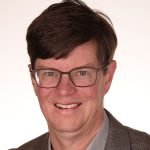Special Session
As more countries, regions and international organizations commit to halving nitrogen waste, the challenge becomes how to make these ambitious targets a reality. A wealth of public policies and private initiatives exist around the world that impact nitrogen pollution, with varying levels of success, and new governance approaches are emerging rapidly. This special session aims to:
1. Explore examples of existing national policies to reduce nitrogen pollution
2. Present ideas for national action plans to implement ambitious N targets
3. Introduce new approaches to nitrogen governance across sectors and scales
Responsibles

David Kanter

Follow on Google Scholar


Follow on Google Scholar

Wilfried Winiwarter

Follow on ORCID
Wilfried Winiwarter is a Senior Research Scholar at the International Institute of Applied Systems Analysis (Pollution Management) close to Vienna, Austria, and also Professor of Environmental Chemistry at the University of Zielona Góra, Poland. Trained as a chemical engineer, Wilfried got intrigued by the versatile behaviour and fate of nitrogen compounds in the environment, and the human and social factors triggering such a fate. Having served as Director of the European Center of the International Nitrogen Initiative, he is now member of the INMS project management board. In his research, he has been focusing on the release and abatement of nitrous oxide emissions (e.g. in collaboration with the Global Carbon Project), in scenarios of future development of the fate of nitrogen, and in the development and application of indicators for nitrogen, such as nitrogen footprints or national nitrogen budgets (with the Expert Panel on Nitrogen Budgets operating under the UN-ECE).


Follow on Google Scholar
Wilfried Winiwarter is a Senior Research Scholar at the International Institute of Applied Systems Analysis (Pollution Management) close to Vienna, Austria, and also Professor of Environmental Chemistry at the University of Zielona Góra, Poland. Trained as a chemical engineer, Wilfried got intrigued by the versatile behaviour and fate of nitrogen compounds in the environment, and the human and social factors triggering such a fate. Having served as Director of the European Center of the International Nitrogen Initiative, he is now member of the INMS project management board. In his research, he has been focusing on the release and abatement of nitrous oxide emissions (e.g. in collaboration with the Global Carbon Project), in scenarios of future development of the fate of nitrogen, and in the development and application of indicators for nitrogen, such as nitrogen footprints or national nitrogen budgets (with the Expert Panel on Nitrogen Budgets operating under the UN-ECE).
In addition to oral communications and posters presentations
The Organizing Committee aims to minimize the environmental impacts of the workshop and both N and C footprints will be calculated afterwards.
We encourage an "in-person" attendance but facilitating a remote connection to key activities during the workshop. Seeing how volatile are these times, all scenarios should be considered now, even a new delay if the sanitary situation does not allow a minimum in-person attendance.
AgrosceNa-UP Project. Funded by the Spanish Ministry of Science, Innovation and Universities
(PID2019-107972RB-I00)
© XXI International N workshop 2022